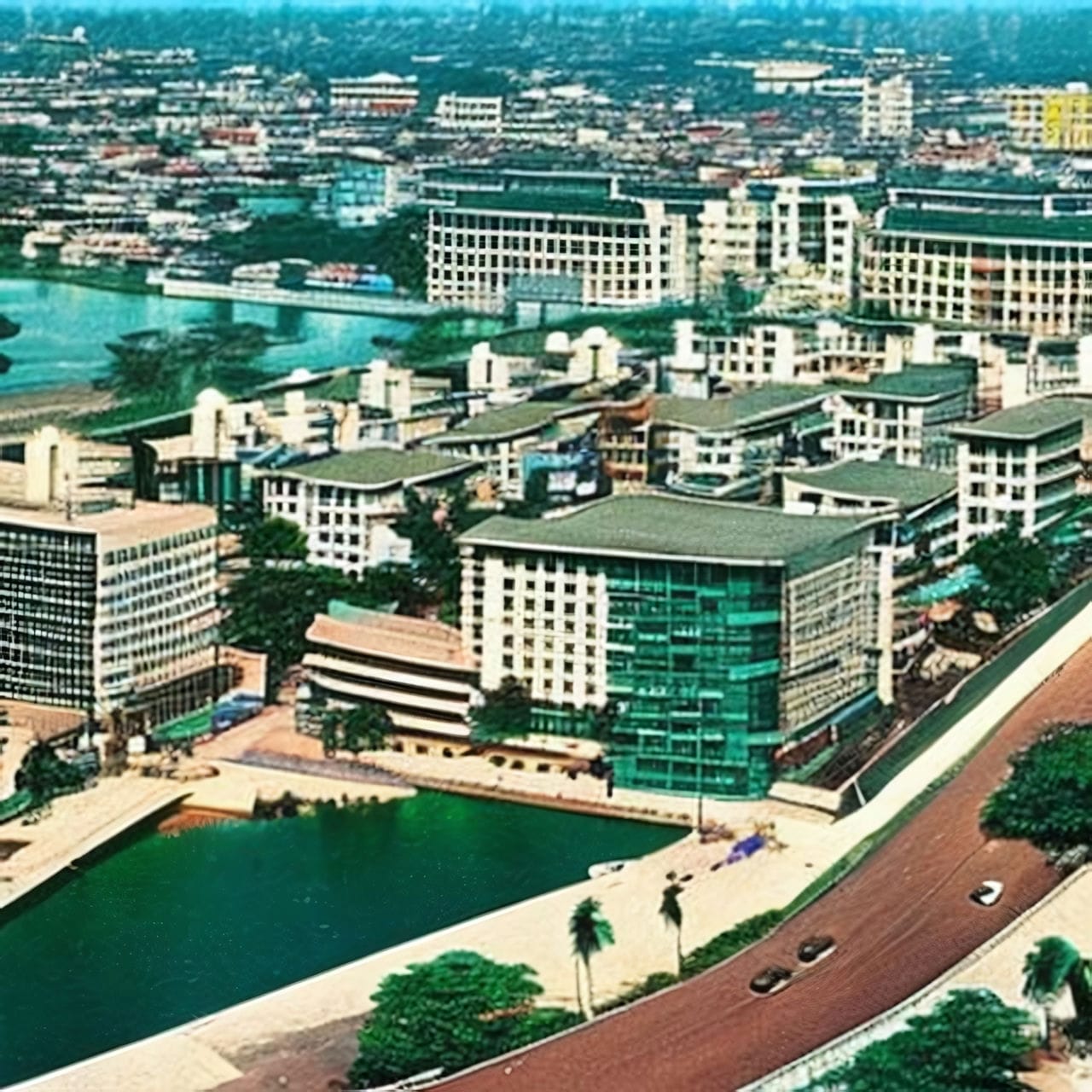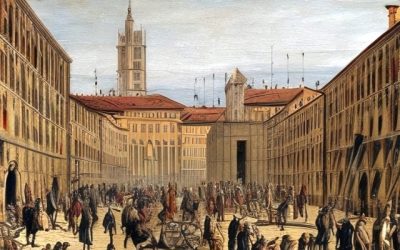In December 1969, a historic event took place in Dar es Salaam, the capital of Tanzania. The First All People’s Conference was convened by President Julius Nyerere, who had led the country to independence from British colonial rule in 1961. The conference brought together representatives of various political parties, trade unions, cooperatives, youth and women’s organisations, and other social groups from all over Tanzania. The aim of the conference was to discuss and endorse Nyerere’s vision for a socialist society based on the principles of ujamaa (familyhood) and self-reliance.
Nyerere was one of the most influential and respected leaders of the African liberation movement. He was a staunch advocate of Pan-Africanism, the idea that all people of African descent should unite and cooperate for their common interests and dignity. He supported the struggles of other African countries against colonialism and apartheid, welcoming many liberation movements to establish their bases in Tanzania. He also played a key role in the formation of the Organisation of African Unity (OAU) in 1963, which later became the African Union (AU).
Nyerere was also a visionary thinker who sought to develop a political and economic system that would suit the needs and aspirations of his people. He rejected both capitalism and communism as alien ideologies that were incompatible with African values and traditions. He proposed instead a form of African socialism that would be based on collective ownership of land and resources, democratic participation of all citizens, and equitable distribution of wealth and services. He believed that socialism was not only a moral duty but also a practical necessity for Tanzania, which was one of the poorest countries in the world at the time.
The First All People’s Conference
The First All People’s Conference was a culmination of Nyerere’s efforts to implement his socialist agenda. He had already introduced several policies and reforms since independence, such as the Arusha Declaration in 1967, which declared Tanzania a one-party state under his ruling party TANU (Tanganyika African National Union), nationalised major industries and banks, and encouraged rural development through villagisation and cooperatives. He had also launched an ambitious programme of adult education known as Mwalimu (teacher), which aimed to eradicate illiteracy and raise political consciousness among the masses.
The conference was an opportunity for Nyerere to explain his vision to his people and seek their feedback and support. He delivered a keynote speech titled “Socialism is not Racialism”, in which he denounced racism as a tool of oppression and exploitation used by colonialists and imperialists. He argued that socialism was not only compatible with but also essential for African unity and dignity. He said: “Socialism – like democracy – is an attitude of mind. In a socialist society it is the socialist attitude of mind, and not the rigid adherence to a standard political pattern, which is needed to ensure that the people care for each other’s welfare.”
His Socialist Model
He also outlined the main features of his socialist model, such as:
– The abolition of private ownership of land and its replacement by communal ownership by villages or other groups.
– The promotion of collective farming and cooperative enterprises as the main forms of production.
– The provision of free education, health care, water, electricity, and other basic services to all citizens.
– The creation of a national service scheme that would require all young people to contribute to national development for two years after completing their education.
– The establishment of a workers’ council system that would allow workers to participate in decision-making and management at their workplaces.
– The encouragement of self-reliance and self-help among individuals and communities, rather than dependence on foreign aid or loans.
The conference was attended by about 1 000 delegates from different regions and sectors of Tanzanian society. They debated and discussed Nyerere’s proposals for four days, expressing their views and suggestions on various issues. They also passed several resolutions that endorsed Nyerere’s vision and called for its implementation. They declared: “We are convinced that socialism is the only ideology capable of bringing about human dignity for all people; we are convinced that socialism is relevant to our situation in Africa; we are convinced that socialism can be realised in our lifetime.”
The conference was widely reported by local and international media and received positive reactions from many observers. It was seen as a landmark event in Tanzania’s history, and a milestone in Africa’s quest for freedom and development. It also inspired other African countries to adopt similar socialist policies or programmes.
Challenges and Criticisms
However, the conference also faced some challenges and criticisms from within and outside Tanzania. Some delegates expressed their concerns or reservations about some aspects of Nyerere’s vision, such as the feasibility of communal ownership of land, the role of private enterprise, the degree of centralisation or decentralisation, and the balance between national unity and regional diversity. Some opposition parties and groups boycotted or denounced the conference as undemocratic or unrepresentative. Some foreign governments and organisations accused Nyerere of being authoritarian or dictatorial, or influenced by communist countries such as China or Cuba.
The implementation of Nyerere’s socialist vision also encountered many difficulties and obstacles in the following years. Tanzania faced economic crises due to droughts, oil shocks, falling commodity prices, rising debts, corruption, mismanagement, inefficiency, bureaucracy, sabotage, external interference, etc. The socialist policies also had some negative social impacts such as displacement, resistance, resentment, apathy, dependency, etc. The quality and availability of public services declined due to lack of resources or maintenance. The national service scheme was unpopular among many young people who saw it as forced labour or indoctrination. The workers’ councils were often ineffective or co-opted by party officials or managers.
Legacy
Despite these challenges and shortcomings, Nyerere’s socialist vision had some positive achievement and legacies for Tanzania and Africa. It helped to create a sense of national identity and solidarity among Tanzanians from different ethnicities, religions, and regions. It fostered a culture of social justice and equality among citizens, and reduced the gap between rich and poor, urban and rural, ne and women. It improved the literacy and education levels of millions of Tanzanians and raised their political awareness and participation. It supported the liberation movements of other African countries and contributed to regional integration and cooperation. It challenged the dominant paradigms of development and modernisation, and offered an alternative vision of African socialism.
The First All People’s Conference was a remarkable expression of Nyerere’s vision for a socialist Tanzania. It was an attempt to translate his ideals into reality, and to involve his people in the process. It was also a reflection of his courage, commitment and conviction, as well as his humility, honesty and openness. He once said: “I have nothing new to offer you except my faith in you; my faith in our ability to build this nation together.”
Nyerere died in 1999 but his legacy lives on in Tanzania and Africa. He is widely regarded as one of the greatest leaders and thinkers of Africa, and one of its founding fathers. He is also remembered as Mwalimu, the teacher who taught us about ujamaa, socialism and Pan-Africanism.
References
– All-African Peoples’ Conference – Wikipedia
– African National Congress Timeline 1960-1969
– Tanzania-South Africa: deep ties evoke Africa’s sacrifices for freedom
– Nyerere J.K., Socialism is not Racialism (1969)
– Coulson A., Tanzania: A Political Economy (1982)
– Brennan J.R., Taifa: Making Nation And Race In Urban Tanzania (2012)
Tags
Divi Meetup 2019, San Francisco
Related Articles
Unappreciated Greatness
Life and Legacy of Jahangir of the Mughal Empire. Jahangir ruled over one of the largest empires in human history during his lifetime, yet few people outside of South Asia have heard of him. I aim to shed light on the life and legacy of this remarkable figure,...
The Plague Doctor’s Diary
A Personal Account of the Turin Epidemic of 1656. I am writing this diary to record my experiences and observations as a plague doctor in Turin, the capital of the Duchy of Savoy, during the terrible epidemic that has afflicted this city and its surroundings since the...
The Timeless Beauty of Bustan
Unveiling the Secrets of Saadi Shirazi's Masterpiece.In the realm of Persian literature, few works have captured the essence of love, spirituality, and morality quite like Bustan (The Orchard) by Saadi Shirazi. This 13th-century masterpiece has left a lasting impact...
Stay Up to Date With The Latest News & Updates
Explore
Browse your topics of interest using our keyword list.
Join Our Newsletter
Sign-up to get an overview of our recent articles handpicked by our editors.
Follow Us
Follow our social media accounts to get instant notifications about our newly published articles.









